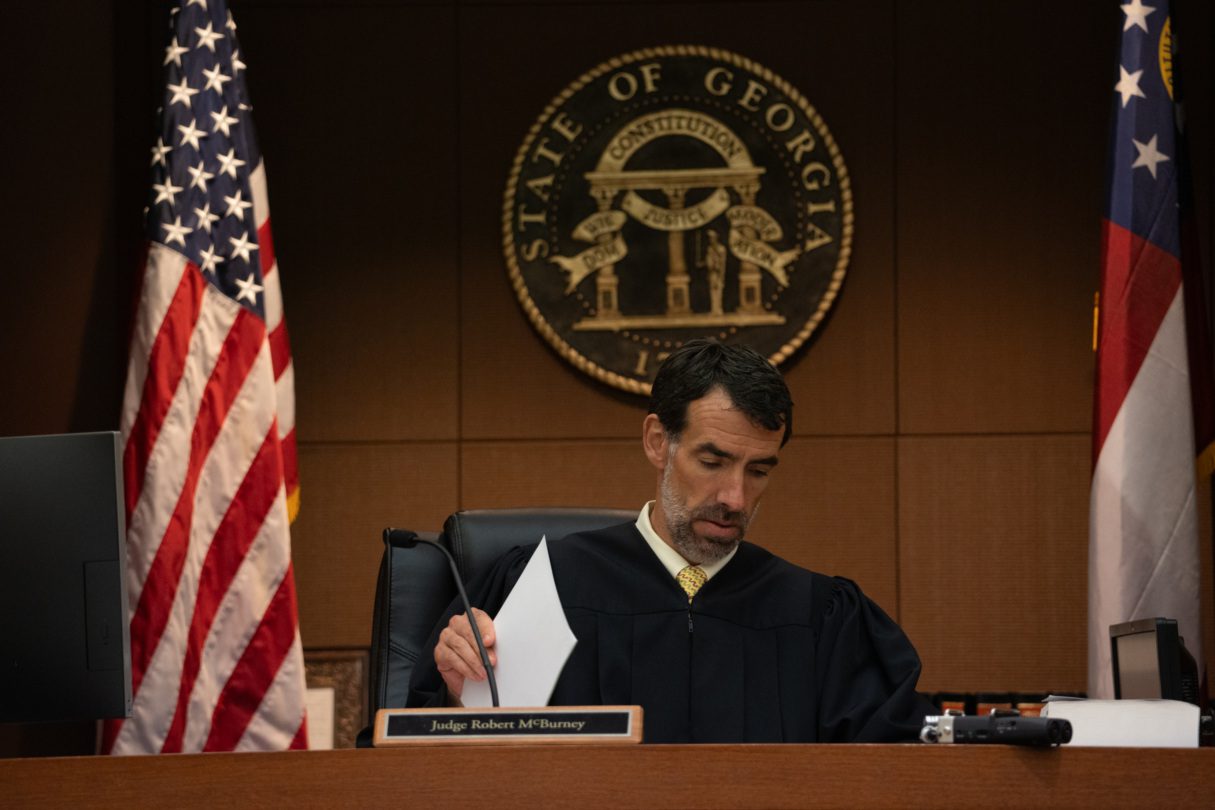Georgia on Our Minds
Plus: Celebrating National Hispanic Heritage Month. 🗳️

Georgia voters and Georgia election officials both got much-needed clarity in court this week.
On Monday, Judge Robert McBurney ordered that counties must certify their election results. A vaguely worded rule passed by the State Election Board in August required counties to conduct a “reasonable inquiry” before certifying. But the election process already includes steps to handle any questions or concerns and ensure that vote totals are accurate. Certification is different—and it’s not optional. If county election boards had the power to refuse to certify, “Georgia voters would be silenced,” McBurney wrote.
On Tuesday, two Georgia judges, McBurney and Thomas Cox, blocked a recently passed rule that would have required counties to hand-count every ballot cast on Election Day in Georgia. McBurney said there was no time to train the state’s 7,500 poll workers to conduct such a count. And, he noted, a hand count would present chain-of-custody concerns. It would allow paper ballots “to be handled multiple times by multiple people following an exhausting Election Day all before they are securely transported to the official tabulation center.”
The state’s top election official, Republican Secretary of State Brad Raffensperger, had expressed concerns about both rules. Both had the potential to introduce delays, disruption, and disinformation into the state’s election. This week’s rulings are a win for Georgia voters, who deserve to have their voices heard, and for Georgia election officials, who can focus on administering the election they trained and prepared for.
Image: Judge Robert McBurney in 2023. (Megan Varner/Getty Images)
This Week in Democracy
- Two Georgia judges halted a new rule passed by the state’s election board that would have required all ballots cast in the state on Election Day to be counted by hand. States United filed a friend-of-the-court brief on behalf of a bipartisan group of former election officials arguing that the rule should be blocked because it is impractical and unnecessary. In a separate ruling, Judge Robert McBurney ordered that all Georgia counties must certify election results on time, in accordance with state law.
➡️ READ: About our brief
- Fulton County District Attorney Fani Willis asked an appeals court to reinstate six charges in the Georgia election interference case that were previously dismissed. Former President Donald Trump was charged with three of the counts. The others charged include former Trump lawyers Rudy Giuliani and John Eastman, and former White House Chief of Staff Mark Meadows.
➡️ READ: The Georgia charges, explained
- Judge Tanya Chutkan denied Trump’s request to delay the release of evidence in the federal election interference case. The evidence, collected by Special Counsel Jack Smith, was released on Friday.
➡️ READ: The latest indictment, explained
- More than a third of Trump’s official electors in key states this year are election deniers or were “fake electors” in 2020, according to a new report from CNN. As in 2020, they can cast legitimate electoral votes for Trump only if he wins their state.
- Early voting began on time in North Carolina, as the state recovers from the damage caused by Hurricane Helene. “One thing Helene did not take from western North Carolinians is the right to vote in this important election,” said Karen Brinson Bell, the executive director of the State Board of Elections.
➡️ EXPLORE: Resources for North Carolina voters affected by Helene
Celebrating National Hispanic Heritage Month
Tuesday marked the end of National Hispanic Heritage Month, a celebration of America’s Hispanic and Latine community.
Hispanic voters are one of the fastest-growing groups in the country, and they’re making important contributions to our democracy. A projection from the Pew Research Center estimates that more than 36 million Hispanic voters will be eligible to vote in November, an increase of nearly 4 million since 2020.
Election mis- and disinformation is still increasing ahead of November, and it often targets Hispanic and Latine voters specifically. Reducing the impact of those lies is central to our work leading up to November and beyond, as well as the work of organizations like the Spanish Language Disinformation Coalition.
You can read about more organizations working to empower Hispanic Americans at this thread on our X profile.
State of the States
In Alabama, Judge Anna M. Manasco ruled that Secretary of State Wes Allen must stop his program to remove supposed noncitizens from voter rolls ahead of the November election. Allen, an Election Denier, created the program in August even though it’s already illegal under state and federal law for noncitizens to vote (and extremely rarely even attempted).
The U.S. Department of Justice sued Allen to stop the program, arguing that it violated the National Voter Registration Act, which requires that voter roll maintenance that uses databases and lists to identify ineligible voters be completed 90 days before an election. Allen acknowledged in court that an early investigation found that at least 60 percent of the voters flagged were, in fact, eligible to vote. Manasco ordered Allen to contact every eligible voter who was wrongly flagged by the program within three days and let them know that they can vote in the Nov. 5 election.
Clips of the Week
CBS’s “60 Minutes” spoke to Al Schmidt, Pennsylvania’s chief election official, about what he and his department are doing to boost voters’ confidence and fight misinformation ahead of the November election.
HBO’s “Last Week Tonight with John Oliver” took an in-depth look into efforts by Trump and his allies to subvert the results of the November election and erode voters’ trust in them.